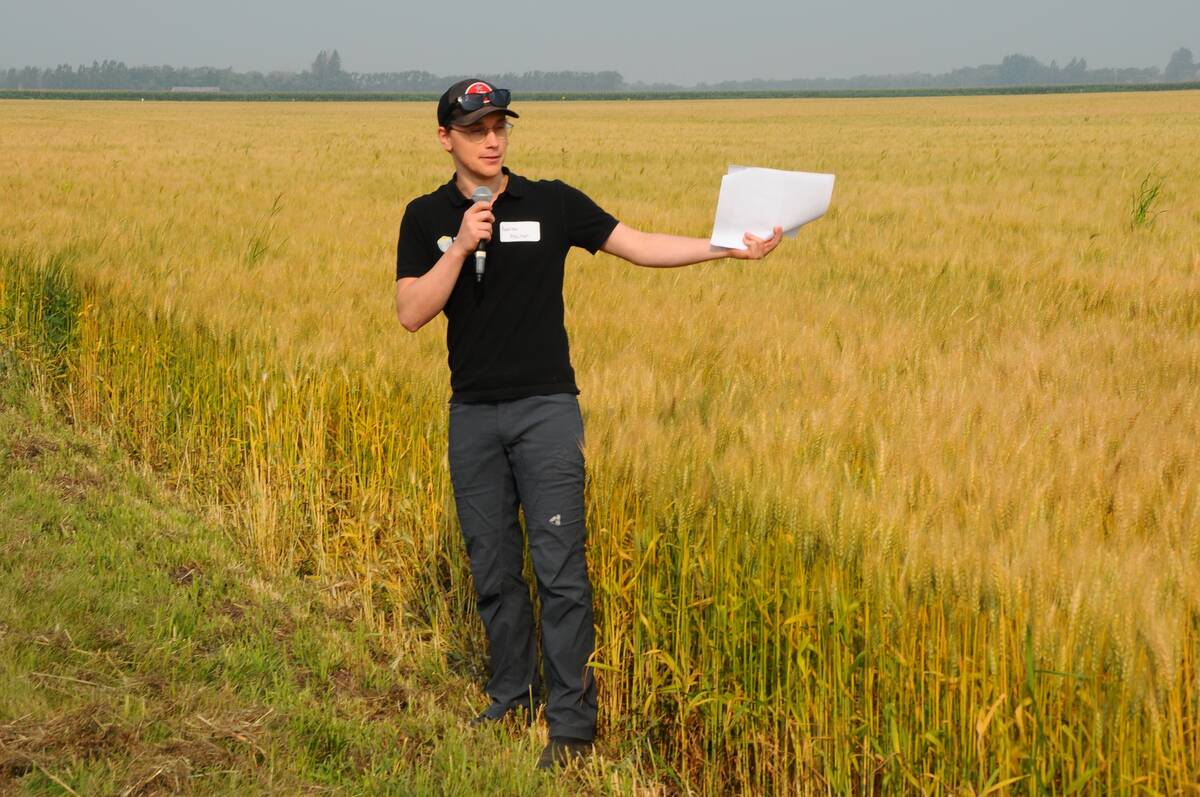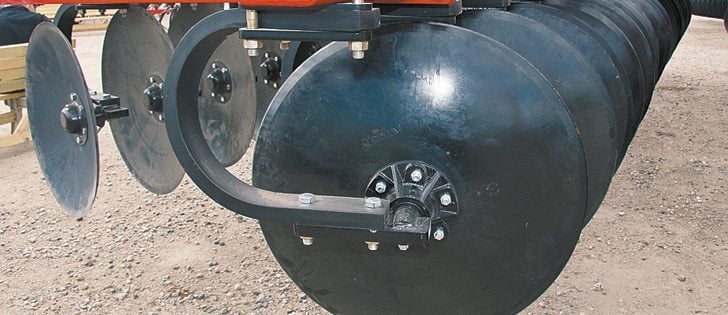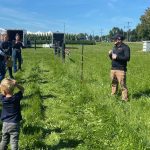Would you like some mustard with your strawberries and tomatoes?
Organic fruit and vegetable growers now have that option.
Jay Robinson, co-founder and general manager of Mustard Products and Technologies, told a meeting during Crop Production Week in Saskatoon that his company has found a way to use mustard seed as a biopesticide, including a natural soil fumigant called MustGro Enable.
Robinson said the product has consistent and comparable performance to synthetic products, has organic status, is safe for use in buffer zones, has a higher yield increase and is easy to use.
Read Also

On-farm research translates science into ‘farmer speak’
Manitoba’s three major agriculture grower groups support farm-level research to test crop science under the shifting conditions of real farmer fields.
It works like this.
A hydrolysis reaction occurs when cell walls are broken in the mustard seed, resulting in the release of a volatile gas and the creation of a colourless oil called allyl isothiocyanate (AITC), which acts as a fumigant.
MPT’s patented process replicates this naturally occurring chemical reaction and converts mustard’s unique compounds into specially formulated biological pesticides that control soil-borne diseases such as pythium, phytopopthora, rhizoctonia, fusarium and verticillium and soil-borne nematodes such as root-knot, sting, stubby root and lance nematodes.
The company is focusing its product on the lucrative fruit and vegetable markets of California, Florida, Quebec, Ontario and British Columbia.
“Our initial focus in the next two years is strawberries and tomatoes. As we expand, vineyards are another big thing (along with) orchards and carrots,” he said.
At its Saskatoon facility, MPT is processing three tonnes per day and expects to increase to 10 tonnes by the end of the month.
Future expansion in one to two years is expected to reach 40 tonnes.
Sales forecasts predict that the company will need 15,000 tonnes of mustard seed by 2015, which would be equivalent to nine percent of the province’s current mustard production.
MPT’s 12,000 sq. foot production facility will eventually include a seed cleaning plant, and the company plans to contract directly with growers.
It now contracts with Viterra for clean seed, which is run through a customized oat cold press.
The company uses a much lower temperature than the 100 C used in the standard cold press to ensure that the properties within mustard are not destroyed. Oil is removed and the mill is run through MPT’s patented extraction process.
Compounds are isolated and the final product is dry, granular and looks like a standard fertilizer pearl. It naturally contains about five percent of slow releasing nitrogen. It’s robust, doesn’t blow around in the wind and doesn’t break down before it’s applied to the soil.
Its shelf life is seven years if kept dry.
MustGro Enable is applied to the soil 14 days before transplanting or seeding using standard fertilizer application equipment and follow-up irrigation.
It begins to release AITC when irrigation starts and moves through soil, water and air to kill soil borne diseases and nematodes.
The product reduces plant diodes and increases plant growth and vigour.
“For the organic guys it’s a no brainer,” Robinson said.
“Just from the data we’ve seen, we can increase the yields by 80 percent (standard organic production), give them an extra $16,000 an acre. For a tomato grower, that’s great for them, but also for the conventional grower using mythl bromide, which is being phased out.”















